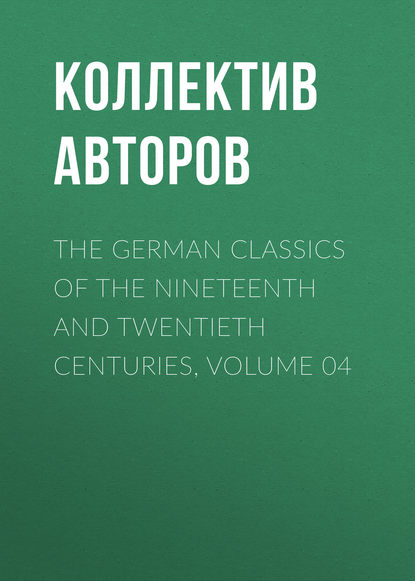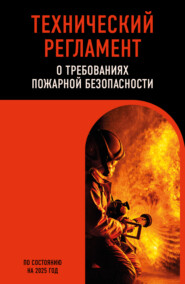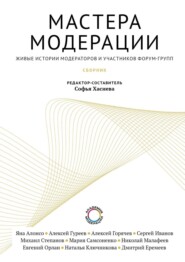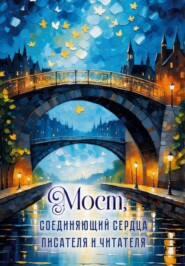По всем вопросам обращайтесь на: info@litportal.ru
(©) 2003-2024.
✖
The German Classics of the Nineteenth and Twentieth Centuries, Volume 04
Настройки чтения
Размер шрифта
Высота строк
Поля
SOLDIER
No, I am going away; why I must enlist with the neighboring duke.
HOST
Say, come and see me when you desert again.
SOLDIER
Certainly. Farewell!
[They shake hands. Exeunt soldier and guests, exit host into the house. The curtain falls.]
INTERLUDE
FISCHER
Why, it's getting wilder and wilder! What was the purpose of the last scene, I wonder?
LEUTNER
Nothing at all, it is entirely superfluous; only to introduce some new nonsense. The theme of the cat is now lost entirely and there is no fixed point of view at all.
SCHLOSS
I feel exactly as though I were intoxicated.
MÜLLER
I say, in what period is the play supposed to be taking place?
The hussars, of course, are a recent invention.
SCHLOSS
We simply shouldn't bear it, but stamp hard. Now we haven't the faintest idea of what the play is coming to.
FISCHER
And no love, either! Nothing in it for the heart, for the imagination.
LEUTNER
As soon as any more of that nonsense occurs, for my part at least, I'll begin to stamp.
WIESENER (to his neighbor).
I like the play now.
NEIGHBOR
Very fine, indeed, very fine; a great man, the author; he has imitated the Magic Flute well.
WIESENER
I liked the hussars particularly well; people seldom take the risk of bringing horses on the stage—and why not? They often have more sense than human beings. I would rather see a good horse than many a human being in the more modern plays.
NEIGHBOR
The Moors in Kotzebue—a horse is after all nothing but another kind of Moor.
WIESENER
Do you not know to what regiment the hussars belonged
NEIGHBOR
I did not even look at them carefully. Too bad they went away so soon—indeed I'd rather like to see a whole play with nothing but hussars. I like the cavalry so much.
LEUTNER (to BÖTTICHER).
What do you think of all this?
BÖTTICH
Why, I simply can't get the excellent acting of the man who plays the cat out of my head. What a study! What art! What observation! What costuming!
SCHLOSS
That is true; he really does look like a large tom-cat.
BÖTTICH
And just notice his whole mask, as I would rather call his costume, for since he has so completely disguised his natural appearance, this expression is far more fitting. But I say, God bless the ancients when blessing is due. You probably do not know that the ancients acted all parts, without exception, in masks, as you will find in Athenaeus, Pollux and others. It is hard, you see, to know all these things so accurately, because one must now and then look up those books oneself to find them. At the same time, however, one then has the advantage of being able to quote them. There is a difficult passage in Pausanias.
FISCHER
You were going to be kind enough to speak of the cat.
BÖTTICH
Why, yes; and I only meant to say all the preceding by the way, hence I beg you most earnestly to consider it as a note; and, to return to the cat, have you noticed, I wonder, that he is not one of those black cats? No, on the contrary, he is almost entirely white and has only a few black spots; that expresses his good-nature excellently; moreover, the theme of the whole play, all the emotions to which it should appeal, are suggested in this very fur.
LEUTNER
That is true.
FISCHER
No, I am going away; why I must enlist with the neighboring duke.
HOST
Say, come and see me when you desert again.
SOLDIER
Certainly. Farewell!
[They shake hands. Exeunt soldier and guests, exit host into the house. The curtain falls.]
INTERLUDE
FISCHER
Why, it's getting wilder and wilder! What was the purpose of the last scene, I wonder?
LEUTNER
Nothing at all, it is entirely superfluous; only to introduce some new nonsense. The theme of the cat is now lost entirely and there is no fixed point of view at all.
SCHLOSS
I feel exactly as though I were intoxicated.
MÜLLER
I say, in what period is the play supposed to be taking place?
The hussars, of course, are a recent invention.
SCHLOSS
We simply shouldn't bear it, but stamp hard. Now we haven't the faintest idea of what the play is coming to.
FISCHER
And no love, either! Nothing in it for the heart, for the imagination.
LEUTNER
As soon as any more of that nonsense occurs, for my part at least, I'll begin to stamp.
WIESENER (to his neighbor).
I like the play now.
NEIGHBOR
Very fine, indeed, very fine; a great man, the author; he has imitated the Magic Flute well.
WIESENER
I liked the hussars particularly well; people seldom take the risk of bringing horses on the stage—and why not? They often have more sense than human beings. I would rather see a good horse than many a human being in the more modern plays.
NEIGHBOR
The Moors in Kotzebue—a horse is after all nothing but another kind of Moor.
WIESENER
Do you not know to what regiment the hussars belonged
NEIGHBOR
I did not even look at them carefully. Too bad they went away so soon—indeed I'd rather like to see a whole play with nothing but hussars. I like the cavalry so much.
LEUTNER (to BÖTTICHER).
What do you think of all this?
BÖTTICH
Why, I simply can't get the excellent acting of the man who plays the cat out of my head. What a study! What art! What observation! What costuming!
SCHLOSS
That is true; he really does look like a large tom-cat.
BÖTTICH
And just notice his whole mask, as I would rather call his costume, for since he has so completely disguised his natural appearance, this expression is far more fitting. But I say, God bless the ancients when blessing is due. You probably do not know that the ancients acted all parts, without exception, in masks, as you will find in Athenaeus, Pollux and others. It is hard, you see, to know all these things so accurately, because one must now and then look up those books oneself to find them. At the same time, however, one then has the advantage of being able to quote them. There is a difficult passage in Pausanias.
FISCHER
You were going to be kind enough to speak of the cat.
BÖTTICH
Why, yes; and I only meant to say all the preceding by the way, hence I beg you most earnestly to consider it as a note; and, to return to the cat, have you noticed, I wonder, that he is not one of those black cats? No, on the contrary, he is almost entirely white and has only a few black spots; that expresses his good-nature excellently; moreover, the theme of the whole play, all the emotions to which it should appeal, are suggested in this very fur.
LEUTNER
That is true.
FISCHER

















